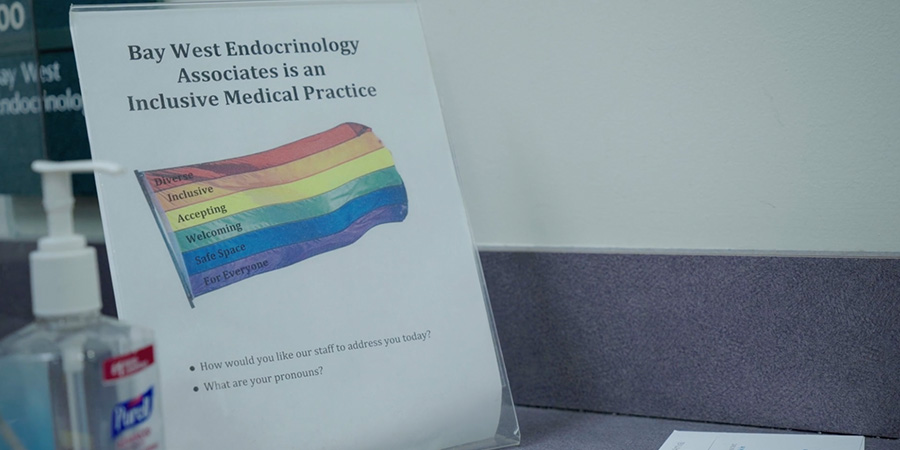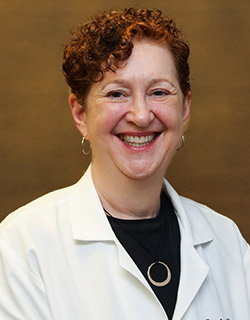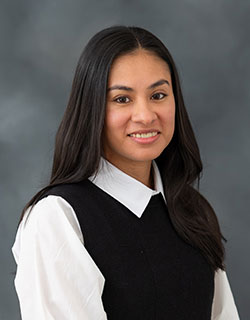Prioritizing inclusivity in healthcare for the LGBTQIA+ community
August 2, 2023
Fear of mistreatment by a medical provider keeps 23% of transgender people from seeking care, according to a survey by the National Center for Transgender Equality. About a third also reported having had negative interactions with medical providers.
In the world of healthcare, there should be nothing exclusive or discriminatory about the health care a person can receive. Ruth Horowitz, MD, chief of endocrinology at GBMC HealthCare, wants one thing for every patient everywhere: to feel welcome and heard, regardless of gender or how a patient chooses to identify themselves.
“There are a lot of general assumptions in healthcare through the language and forms we use,” she explains, “namely that everyone is heterosexual and cisgender. If you don’t fall under those guidelines, there can be an unwelcomeness or feeling like your specific needs won’t be addressed.”
It’s not necessarily that medical needs for transgender patients are different, but the fear of discrimination these folks experience prevents them from seeking appropriate and timely health screenings, preventive care or treatment plans for chronic health conditions.
It is true that, compared to the general population, transgender individuals experience significantly higher rates of substance abuse disorders, mental health disorders, violence and suicide. But it is not because they are inherently more ill, rather the lack of access to resources has drastic impacts on health outcomes and access to care.
Transgender individuals are also negatively impacted by social determinants of health such as a lack of quality insurance, homelessness, and social isolation, all of which impacts their desire and ability to seek medical care.
The topic of LGBTQIA+ care is close to Dr. Horowitz’s heart. She has a transgender family member and considers herself a fierce advocate for those who don’t fit the traditional standards of gender. She is working to bring that passion and inclusive approach both in her own private practice and at GBMC, alongside the Diversity, Equity and Inclusion Team and LGBTQIA+ Employee Resource Group.
“You’re drawn to what speaks to you,” she says. “Patients who come to see me understand that I have personal stake in the matter, that I get it.”
When her physician assistant approached her with the idea to make their inclusivity more visible with signage, Dr. Horowitz agreed it was a necessary change for the practice. They began by identifying her office as a safe space, welcoming patients to present their pronouns and hanging inclusive signage around the office. They also updated their intake forms so patients can put in their specific information and not be limited to outdated choices.
The positive effect it had on the patient population was clear based on the responses they received. Staff have even witnessed patients taking photos of the signs and posting them on social media.
GBMC’s vision is to treat to every patient as if they are a member of your own family, and the standards being implemented in Dr. Horowitz’s practice to support accessible and equitable LGBTQIA+ care help achieve this vision.
“The more we can help educate fellow medical care providers, the better care they can provide,” she says.







